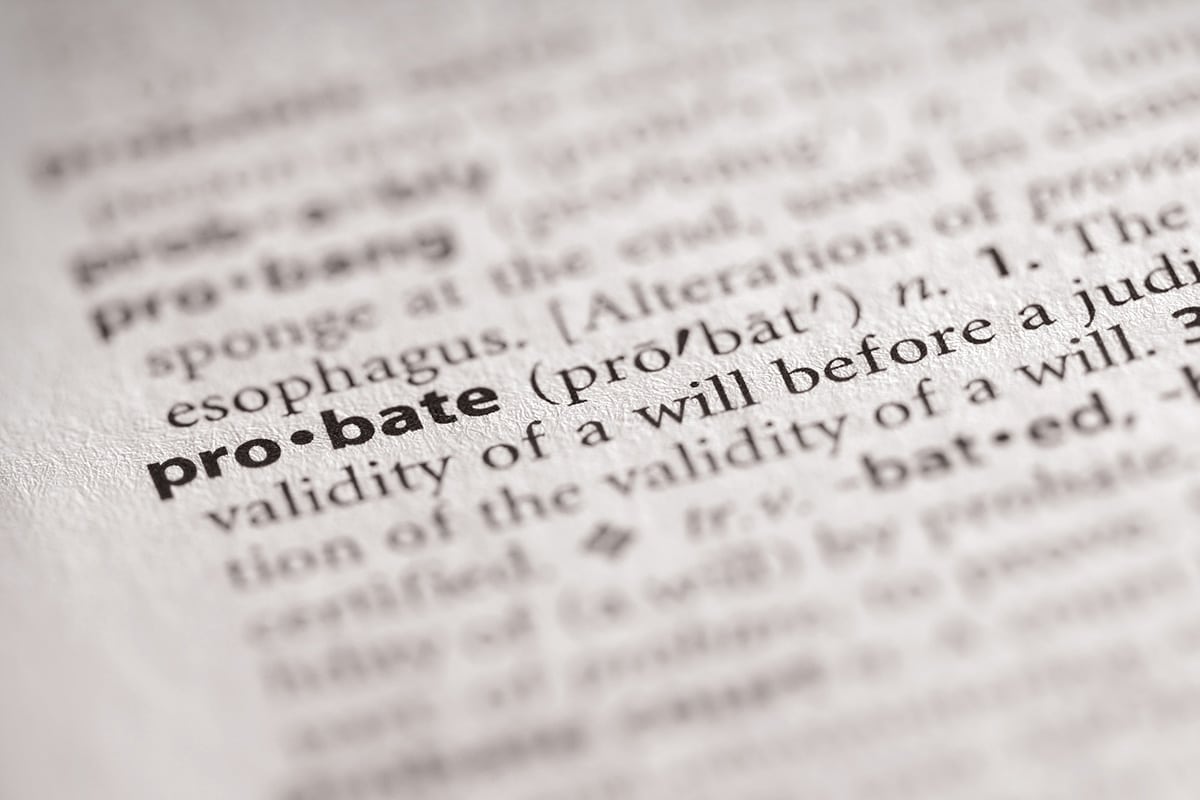
Probate is a legal process of (1) proving a will reflects the true wishes of a deceased person, (2) inventorying their property and belongings, (3) paying off their debts and taxes, and (4) distributing what’s left to their next of kin. Well, that’s the definition a non probate attorney should keep in their head, anyways.
Probate is a complicated process. Modern Probate law differs from state to state, and its history hails from early colonial property law, which in turn was a descendent of Medieval English Property Law, which has roots in Medieval French Property Law. Although the conventions of law have been greatly simplified since its implementation in the United States, it is still a headache for a skilled probate attorney to navigate.
In most states Probate starts when someone dies and has left behind a Will. The Will names “beneficiaries” (people who receive assets from the deceased) and an “executor” (or in some states the “personal representative”, a person responsible for executing the wishes of the deceased). The executor usually works together with an attorney to file notices of the loved one’s passing with the local court. The attorney helps the executor identify any property, banking accounts, insurance policies, stocks, bonds, etc. that were owned by the deceased. The executor then finds and pays off any debts the deceased may have had, gives anyone listed in the will their inheritance, and notifies any creditors that the deceased passed away.
We deal with the costs of Probate because it is the only way to ensure the deceased’s wishes are faithfully executed.
But what if the person who died did not have a Will?
Sometimes the deceased doesn’t leave a Will with instructions on how his or her assets should be distributed after death. What if the person who died left jewelry behind and did not stipulate who gets it? What if you wanted your parent’s home but the person named executor in the will wants to sell it? What if the person who died was not in sound mind when they made their Will, and you worry they were coerced into giving treasured property away to someone undeserving? These are all the sorts of problems that can come up during Probate.
When a person dies without a will, they are said to have died “intestate”. The Probate process for intestate estates usually follows a hierarchy of distribution that assigns the distribution of property based on the State’s laws of intestate succession. The laws of intestate succession divide property among the surviving spouse and children of the deceased.
If you are unsure that the property of a loved one is being equitably divided it is best to schedule a consultation with an attorney and receive a professional opinion.
Is there an inexpensive way to handle Probate?
It’s unlikely. Law in the United States of America is tricky, old, and impenetrable. (We say this lovingly of course!) When you start Probate, you are paying for the time of your attorney, the time of the courts to process paperwork, and the time financial professionals to close, open, and audit your loved one’s accounts.
Contact a Probate Attorney and Get Your Estate Settled
The best thing you can do to avoid Probate is to see an attorney to create an Estate Plan. Contact the office of Moseman Law today to schedule an appointment.
